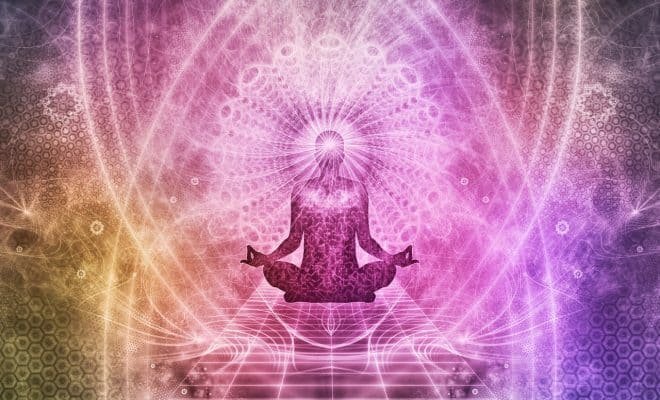The Soul Question: Does the Soul Exist?

The theory of individual bodies containing a separate entity that survives death has been the main topic of ancient and modern philosophers for millions of years. Although this topic has been debated for many years, no one really knows if the soul does or does not exist. However, there are philosophers that have argued that a soul has to exist separately from the brain which gives the soul immortality. There are also modern-day scientists who are in search of the truth behind all the debates over the soul and its immortality.
“Our bodies are charged with the energy of the soul which at our death returns to the main source of this energy. The brain and soul are separate from each other, with the brain acting as the functioning part for the body and senses; while the soul allows for us to see a rainbow and feel something special within.”
Plato (470 BCE-399 BCE) was a student of Socrates, a teacher of Aristotle, and one of the most studied philosophers in the world. Plato is well known for his writings of dialogues with Socrates before his death sentence. Plato’s Phaedo consists of the conversation of Socrates on the day of his death while also containing Plato’s own philosophical views: “The souls of the dead in the underworld come from those living in this world while the living souls come back from those of the dead.” Plato regarded the soul as being immortal with learning a recollection from the soul’s journey.
Aristotle (384-322 BC) made great contributions in various areas of study such as metaphysical, mathematics, physics, biology, botany, logic, and ethics. This knowledge would inspire one of the greatest conquerors of antiquity, as Aristotle served as tutor to Alexander the Great. Aristotle wrote On the Soul, in 350 BCE, where Aristotle argues the validity of the soul being separate from the brain in which the soul is the only truth of the body. The soul is the only way the body can gain real meaning of the world.
Marsinlio Ficino (1433-1499) was a Florentine philosopher and Catholic priest who was responsible for the revival of Plato and Platonism during the Renaissance period. Ficino’s Platonic Theology argued that the rational powers of the soul supports immortality with these essential functions are in no way dependent upon the body. Ficino stated that the “sole function of the soul is to strive for knowledge and goodness.”
David Hume (1711-1776), a Scottish historian and philosopher well-known for is radical philosophical empiricism and skepticism, included his views on the soul and it’s immortality in “The Existence of Souls and Resurrection.” Hume contends that the arguments for the immortality of the soul are founded in either metaphysical topic, moral, or physical. He states that experience is the only source of our judgments that we cannot know from any other principle. Hume’s statement, “Nothing in this world is perpetual, everything firm is in a continual flux and change.”
“Griffith suggests that when our “intellect began to progress and challenge our already deep-rooted instincts for control of our minds, a terrible conflict broke out between these two learning systems”, the consequence of which was the extremely competitive, selfish and aggressive state that we call the human condition.”
The soul exists separately from the brain, therefore; survives death. The soul is the energy within us which allows for us to feel sympathy, empathy, and remorse. Our bodies are charged with the energy of the soul which at our death returns to the main source of this energy. The brain and soul are separate from each other, with the brain acting as the functioning part for the body and senses; while the soul allows for us to see a rainbow and feel something special or emotional pain.
The Australian biologist Jeremy Griffith goes further and proposes that not only is our “collective unconscious inherited, but it is, in fact, a genuinely altruistic instinctive orientation.” This is the source of our moral guidance, the voice of which is our conscience, and which we have called our “Soul.” Griffith goes on to explains that the human condition resulted because the brain is made up of two different learning systems; one is a gene-based system, our instincts, a learning system we share with all other animal species, while the other is a nerve-based system; our conscious intellect which is unique to us humans. Griffith suggests that when our “intellect began to progress and challenge our already deep-rooted instincts for control of our minds, a terrible conflict broke out between these two learning systems”, the consequence of which was the extremely competitive, selfish and aggressive state that we call the human condition. With many scientists still rebuking the theory of the soul, scientific evidence of the soul is hard to come by. Yet, Griffith is certainly on to something with his theory.
“This energy acts much like electricity in a house; you can turn the light switch so to turn off the light, yet when you are ready for light again, you flip the switch which results in the lights coming back on, thus proving that the electricity is still running through the house.”
There are many who reject the concept of the soul and the soul’s immortality. Modern science has replaced the soul concept with a focus on the brain and the relations to thought with evidence showing that if the brain loses function it results in the death of the body. However, these objections focus on the brain in relation to the body and with the soul and brain being separate, of course, these scientists insist that the soul is not a rational theory. The brain acts as a computer for the body by reading input data and responding. How can something hurt you so badly that you feel as if your heart will break? The brain cannot be emotional if it works as a computer, therefore; a soul is the only logical explanation for emotions and knowing the world.
As Aristotle stated in On the Soul, “the soul is the only way the body can gain “real meaning” of the world. Without the soul, humans would be reproductions of a program; perceiving things in the same fashion. As for the soul’s immortality, with the soul being separate from the brain, the soul is able to remain a viable form of energy. This energy acts much like electricity in a house; you can turn the light switch so to turn off the light, yet when you are ready for light again, you flip the switch which results in the lights coming back on, thus proving that the electricity is still running through the house. If one was doing major repairs to the electrical units of a house, the main breaker would be flipped to keep a person from being electrocuted. People do not see the electrical current running through the house, except for the light bulbs shining or the slight buzzing sound. People do not assume they have no electricity when they walk into the house and there are no lights on. They are assured when the light switch is flipped on that the lights will appear.
In conclusion, the soul and its immortality is an idea which spans through time resulting in many cultures having a soul concept. Many philosophers have debated the existence of the soul and its immortality with some such as Hume coming to the conclusion that the soul cannot be deduced by scientific methods of reasoning alone, however, scientists such as Griffith are well on the way with overwhelming evidence in favor of the soul concept.









